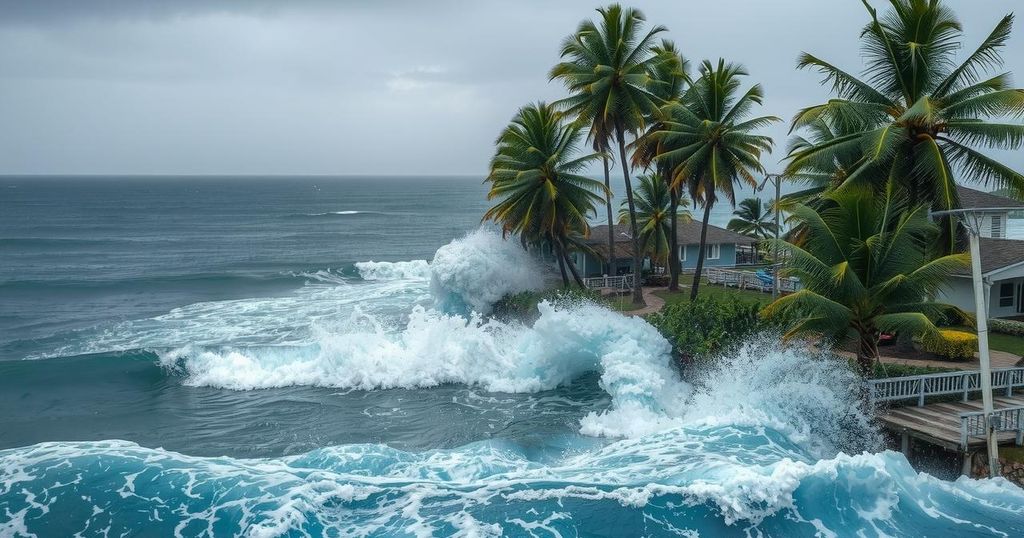Cyclone Chido Causes Devastation in Mayotte and Mozambique

Cyclone Chido devastated southeastern Africa, resulting in 14 casualties in Mayotte and significant damage in Mozambique. With sustained winds reaching 124 mph, the cyclone caused widespread destruction of homes and vital infrastructure, prompting emergency responses from the French government and global aid organizations. As skies clear and recovery efforts unfold, the humanitarian prospects remain critical for the affected populations.
Tropical Cyclone Chido has wreaked havoc across southeastern Africa, leading to the tragic loss of 14 lives in Mayotte, a French territory in the Indian Ocean, before subsequently impacting Mozambique. Mayotte experienced sustained winds of up to 124 mph, while Mozambique faced winds at 115 mph, categorizing the storm comparable to a Category 3 hurricane in the Atlantic. The cyclone initially formed in the Southwest Indian Ocean Basin as the season’s third named storm and made landfall in Cabo Delgado province, situated near Pemba, Mozambique.
In the aftermath, it has been reported that numerous homes, schools, and health facilities in both Mayotte and Mozambique have suffered severe damage, compounding the humanitarian crisis in the region. Guy Taylor of UNICEF expressed grave concern about the destruction of vital infrastructures, asserting the need for collaborative efforts with the government to maintain essential basic services. He further elaborated on the situation’s severity during an interview with Al Jazeera.
The cyclone passed north of Madagascar before striking Mayotte, which comprises two islands and is home to approximately 320,000 residents. Due to the impact, many inhabitants, predominantly living in makeshift housing with sheet metal roofs, have been displaced, as evidenced by reports from the BBC. Currently, Mayotte is gradually recovering as clearing skies have been observed.
As the storm moves southwest, there are forecasts indicating a significant weakening of Cyclone Chido. In response to the disaster, French President Emmanuel Macron expressed solidarity with the residents of Mayotte, assuring them of the French government’s support and the provision of emergency supplies. Reinforcements are being dispatched, with a focus on enabling the reopening of Pamandzi airport for military aircraft, as mentioned by the acting French Transport Minister, François Durovray. Prior to the storm’s arrival, Mayotte was placed under a purple alert, indicating a serious threat, and a strict lockdown was enforced for the safety of the populace.
The impact of Tropical Cyclone Chido has been profound in the regions it has traversed, particularly in Mayotte and Mozambique. Mayotte, an island territory of France, and Mozambique, an independent nation, have faced the storm’s wrath, which is characterized by extremely high winds and intense rainfall. The cyclone represents one of the seasonal threats common in the Southwest Indian Ocean, highlighting the vulnerabilities of these communities to natural disasters. The aftermath of such storms often sees critical infrastructure damaged, leading to urgent humanitarian needs and recovery efforts that engage local and international agencies.
The devastation caused by Cyclone Chido highlights the urgent need for disaster preparedness and response in regions susceptible to such climatic extremes. The loss of life and significant infrastructural damage in Mayotte and Mozambique calls for a coordinated humanitarian response to aid recovery efforts. As the effects of climate change amplify the frequency and severity of such weather events, it is imperative for governments and organizations to enhance support systems for affected communities.
Original Source: www.upi.com







